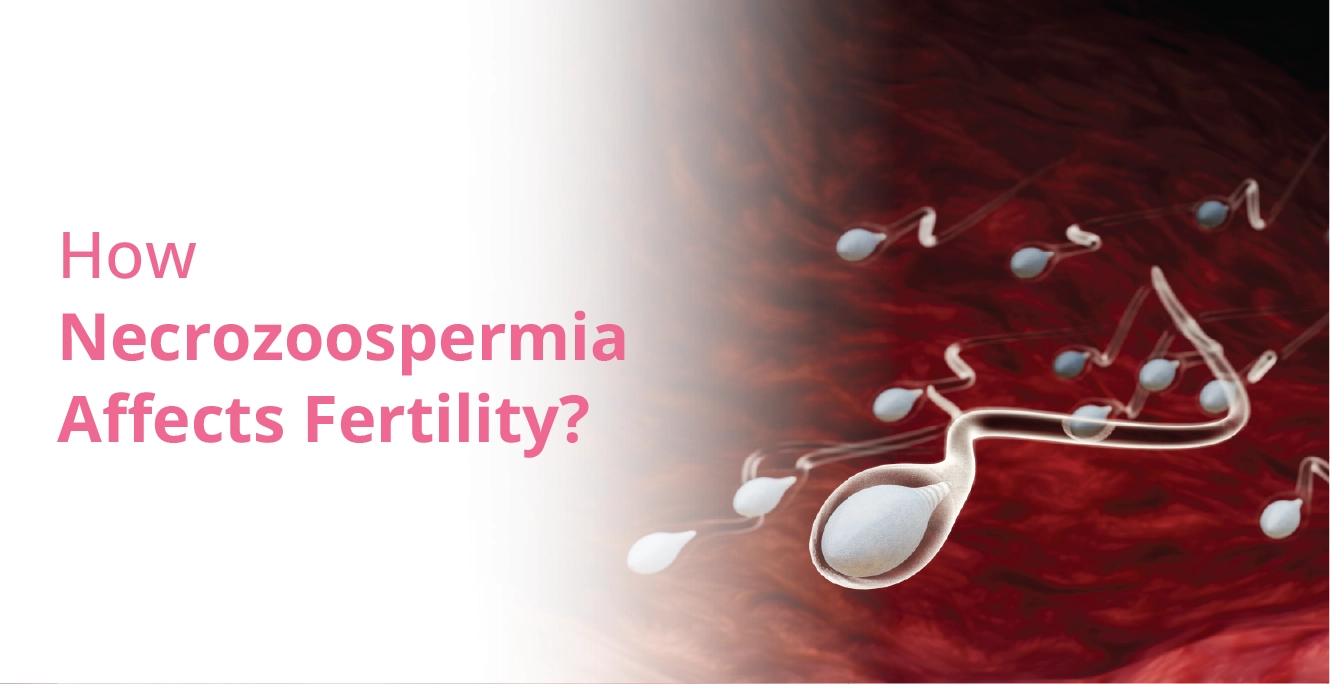
Can Excessive Masturbation Cause Infertility

Table of Contents
Masturbation is a normal and healthy expression of human sexuality. However, some men worry that it may negatively impact their fertility and reproductive abilities. Myths about masturbation create stress for those trying to conceive. If you share this worry, know that you are not alone. Many men struggle with the potential impact of excessive masturbation on their fertility.
This article clarifies excessive masturbation, examines its link to infertility, dispels misconceptions, and empowers informed sexual and reproductive health decisions.
What Is Meant By Excessive Masturbation?
Excessive masturbation is defined not by frequency but by its impact on an individual’s life. While three to four times a week is often considered normal, multiple daily sessions can signal a problem. Signs include
- physical issues like skin irritation
- pain during erections
- guilt, anxiety, and low self-esteem.
- strained relationships due to social withdrawal and intimacy challenges
Additionally, excessive masturbation can disrupt daily responsibilities. Understanding these signs can alleviate stress and promote a healthier approach to conception.
When Does Masturbation Become A Concern?
Here are some signs that masturbation may be becoming excessive or concerning:
- Frequency: Masturbating 3-4 times a day is considered excessive and can lead to temporary reductions in sperm count.
-
Preoccupation with masturbation: If you find yourself constantly thinking about masturbating or feeling an irresistible urge to do it, even when it’s inappropriate or inconvenient, it may be time to re-evaluate your relationship with the behaviour. Healthy sexual thoughts and desires are normal, but they shouldn’t dominate your mind 24/7.
-
Neglecting other areas of life: Masturbation should never come at the expense of other important responsibilities and relationships. If you’re skipping work, school, social events or quality time with loved ones to masturbate, it’s a red flag that the behaviour is becoming compulsive. Healthy sexual expression should enhance your life, not detract from it.
-
Negative emotions and consequences: Feeling guilty, ashamed or anxious about masturbating or experiencing negative consequences like relationship problems, skin irritation, or physical injury as a result indicates that the behaviour may be problematic. Masturbation should be a source of pleasure and relaxation, not distress.
-
Interference with sexual function: Masturbating too frequently or in a way that desensitises you to other forms of sexual stimulation can lead to difficulties with arousal, erection and orgasm during partnered sex. If you find yourself struggling with sexual function, it may be time to adjust your masturbation habits.
What matters most is how the behaviour makes you feel and how it impacts your overall well-being. If masturbation is causing you distress or interfering with your life in a significant way, consider speaking to a therapist for guidance on developing a healthier relationship with your sexuality.
Is Excessive Masturbation Related To Fertility Concerns?
The connection between excessive masturbation and male fertility is often misunderstood, leading to various myths and concerns. It’s essential to clarify that masturbation does not cause infertility. However, there are some nuances worth considering regarding how it may influence reproductive health.
Azoospermia
A common myth is that masturbation causes azoospermia (zero sperm count), the absence of sperm in semen. However, research shows that masturbation does not lead to azoospermia and has minimal effects on male fertility. Understanding this can help dispel misconceptions surrounding sexual health and promote a more informed perspective on male reproductive issues.
Temporary reduction in sperm count
While masturbation itself does not cause infertility, excessive frequency may lead to temporary changes in sperm count. Frequent ejaculation can result in a short-term decrease in sperm count due to insufficient time for sperm replenishment. This phenomenon occurs because the body continuously produces sperm, but if ejaculation happens too frequently, there may not be enough time for the testes to regenerate sperm adequately. However, this effect is short-lived and does not have any long-term consequences on sperm quality or count.
Timing matters for conception
For couples trying to conceive, timing can play a role in optimising fertility. While regular ejaculation is generally healthy, abstaining from masturbation for a few days before attempting conception—typically the days leading up to ovulation—may enhance sperm quality during that critical window.
Sperm quality and abstinence
Research indicates that while abstaining from ejaculation for 2-5 days can enhance sperm volume and concentration, prolonged abstinence may reduce sperm motility and DNA integrity. Conversely, frequent ejaculation, including masturbation, does not significantly lower sperm count and can improve overall sperm quality by eliminating older sperm, allowing for the production of healthier ones.
Recovering From The Excessive Masturbation Habit
If you feel that your masturbation habits have been excessive, here are some steps you can take to recover:
-
Identify the underlying cause: Determine what is driving the compulsive behaviour, such as stress, anxiety or trauma. Addressing the root issue is key to long-term recovery.
-
Seek professional help: Work with a therapist who specialises in sexual addiction to develop coping strategies and a treatment plan.
-
Develop healthy habits: Engage in regular exercise, maintain a balanced diet and practice stress management techniques like meditation. Keeping busy with hobbies and social activities can help redirect urges.
Psychological considerations
It’s important to recognise that excessive focus on masturbation can sometimes indicate underlying stress or mental health issues. Addressing these concerns holistically—considering both psychological and physical health—is crucial for overall well-being and fertility.
Practical Advice for Conception
If you and your partner are trying to conceive, it’s generally recommended to avoid masturbation during the fertile window (the 3-5 days leading up to ovulation) to optimise sperm count and quality for conception. However, outside of this crucial time frame, there is no scientific evidence that masturbation causes infertility. Here are some key points to keep in mind:
|
Timing |
Recommendation |
|---|---|
|
Fertile window |
Have sex every 1-2 days during the 3-5 days before ovulation |
|
Abstinence period |
Avoid ejaculation for 2-5 days before procedures like IVF , semen analysis, or sperm freezing |
Boosting Natural Conception: Tips To Increase Sperm Count
To enhance the likelihood of natural conception, consider implementing the following strategies to improve sperm count:
-
Abstain from masturbation for 2–5 days to help restore optimal sperm count and quality.
-
Maintain a healthy lifestyle, including a balanced diet, regular exercise, and avoiding heat sources like hot tubs and laptops.
-
Manage stress through activities such as meditation, exercise, or counselling, as high stress levels can negatively impact fertility.
Myths and misconceptions surrounding masturbation and fertility that are not supported by scientific evidence:
-
Myth: Masturbation causes erectile dysfunction.
-
Fact: There is no link between masturbation and erectile dysfunction. However, men who are used to a certain level of stimulation may sometimes have difficulty achieving orgasm with a partner.
-
-
Myth: Semen retention improves fertility.
-
Fact: The practice of avoiding ejaculation (semen retention) does not improve fertility. In fact, it may be detrimental to sperm quality if practiced for extended periods.
-
The bottom line
In conclusion, excessive masturbation does not cause infertility. While frequent ejaculation may temporarily lower sperm count in men, it does not have any long-term effects on fertility. Masturbation offers several health benefits and is a normal part of a healthy sex life. The key is to practice moderation and be mindful of timing when trying to conceive. It’s best to avoid masturbation during the fertile window of your partner to optimise sperm quality, but there’s no need to abstain completely.
Remember, if there are any concerns about fertility or reproductive health, consulting a fertility doctor can provide personalised guidance and support to identify and address any underlying fertility issues rather than blaming masturbation.
A Word from the Expert
“Masturbation is a natural and healthy sexual activity that does not cause infertility. While it’s true that frequent ejaculation can temporarily lower sperm count, this effect is short-lived and does not impact long-term fertility. If you’re struggling to conceive, it’s important to focus on overall health, lifestyle factors and seeking medical guidance when needed, rather than worrying about masturbation habits.”~ Lipsa Mishra
Our Fertility Specialists
Related Blogs
To know more
Birla Fertility & IVF aims at transforming the future of fertility globally, through outstanding clinical outcomes, research, innovation and compassionate care.
Had an IVF Failure?
Talk to our fertility experts

 Our Centers
Our Centers















